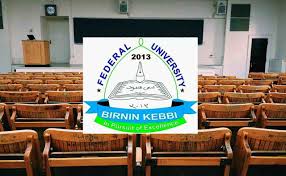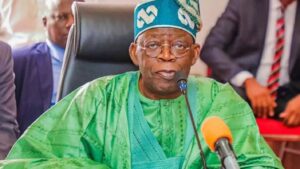
FUBK scores big in NUC accreditation exercise, gets 12 programmes accredited
The Federal University Birnin Kebbi (FUBK) has achieved a significant milestone in its academic journey, as the National Universities Commission (NUC) has accredited 12 of its undergraduate programmes.
According to the results of the accreditation exercise conducted between November and December 2023, 11 programmes received full accreditation, while one programme was granted interim accreditation.
The accredited programmes span across the Faculties of Arts, Social and Management Sciences, and the Faculty of Science, demonstrating the university’s commitment to academic excellence across various disciplines. The full accreditation status is valid for five years, while the programme with interim accreditation will be revisited in two years.q
The accreditation exercise was conducted by the NUC, and the results were signed by Ag. Director of Accreditation, Engr. Abraham Chundusu, on behalf of the Executive Secretary.
The university community and the public have been informed of this achievement, which is expected to boost the university’s reputation and attract more students to its accredited programmes.
The programmes that secured full accreditation include: Business Administration, History and International Studies, Demogragraphy and Social Statistics, Economics, Political Science and Sociology. The rest are Applied Geophysics, Biochemistry, Computer Science, Mathematics and Statistics. On the other hand, the programme with interim accreditation would be fully accredited in the next two years.
While speaking on the development, the Vice Chancellor of the University, Prof. Muhammad Zaiyan Umar, “expressed delight over the results. He was optimistic that the other programme with interim accreditation would achieve full accreditation in the next two years.”
The Vice Chancellor “expressed gratitude to all stakeholders who participated in the exercise. He thanked the Management of FUBK, Deans, Directors and Heads of Department. He also appreciated staff and students of the University for their support and cooperation which contributed to the success of the exercise.”
The NUC report revealed that “Section 10 (1) of the education (national minimum standard and establishment of Institutions) Act CAP 3LE3, Laws of the Federation of Nigeria 2004, empowers the NUC to lay down Minimum Academic Standards for all academic programmes taught in Nigerian Universities and also to accredite such programmes.”
“The implementation of the Core Curriculum Minimum Academic Standards (CCMAS) commenced in 2023/2024 academic session. The University is expected to ensure compliance in the utilisation of the CCMAS for all programmes.”




